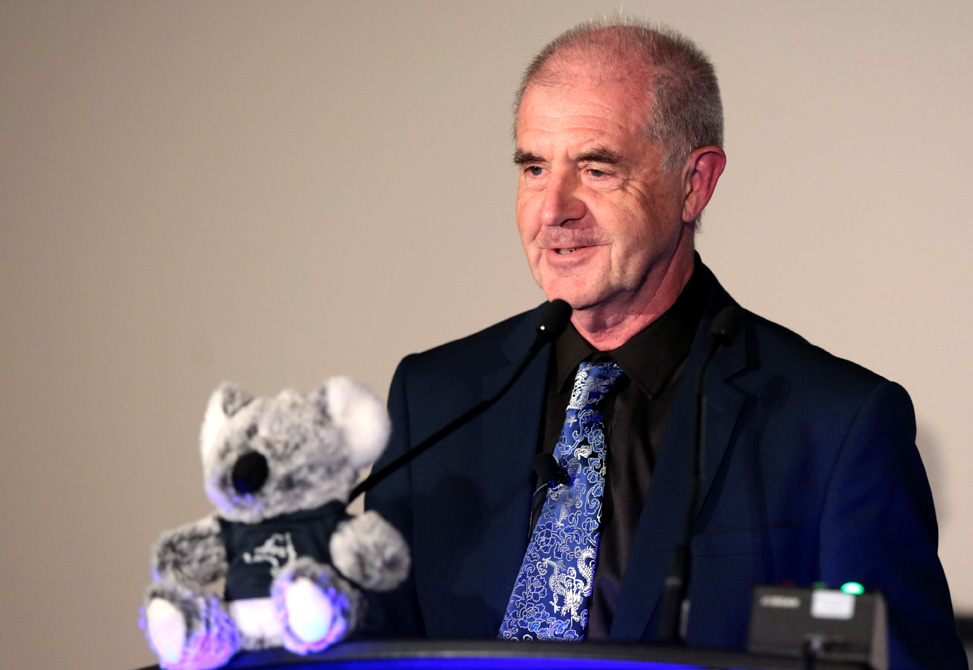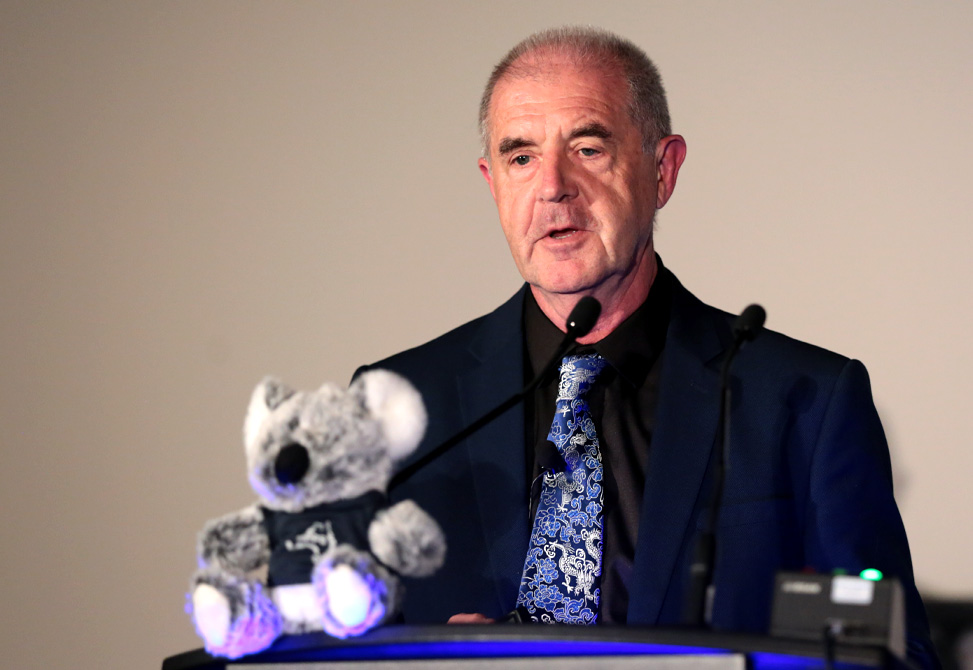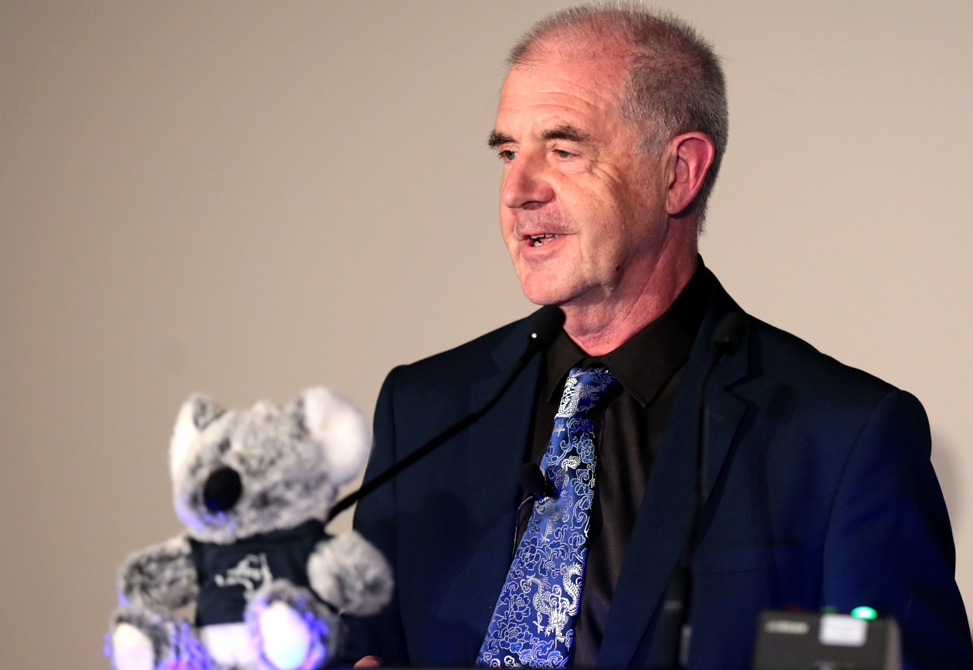David Craik
University of Queensland
Talk Session: CLOSING PLENARY KEYNOTE LECTURE
Date: Thursday, June 16, 2023
Talk Time: 04:10 pm - 04:55 pm
Talk Title: Discovery and Applications of Cyclotides: Nature's Ultra-Stable Peptide Scaffolds
David Craik is in the Division of Chemistry and Structural Biology at the Institute for Molecular Bioscience, The University of Queensland, Australia. He discovered the cyclotide family of circular proteins and has characterized the structures of many animal toxins including conotoxins from cone snail venoms. He heads a research team of 35 researchers whose current work focuses on applications of circular proteins, toxins and NMR in drug design.
David has authored over 600 scientific papers, including 6 in Nature/Nature Communications/Nature Neoroscience/Nature Structural Biology/Nature Chemical Biology/Nature Chemistry, 1 in Science, 9 in PNAS and 8 in Angewandte Chemie.
He is a Fellow of the Australian Academy of Science and has received numerous awards for his research, including the Ralph F. Hirschmann Award from the American Chemical Society, 2011, Ramaciotti Medal for Excellence in Biomedical Research, 2014, GlaxoSmithKline Award for Research Excellence, 2014, the Vincent du Vigneaud Award from the American Peptide Society, 2015, and the FAOBMB Award for Research Excellence, 2015. He is an Honorary Professor of Jinan University, Guangzhou and has an Honorary Doctorate from Kalmar University in Sweden.
David Craik obtained his Ph.D. in organic chemistry from La Trobe University in Melbourne, Australia and undertook postdoctoral studies at Florida State and Syracuse Universities before taking up a lectureship at the Victorian College of Pharmacy in 1983. He was appointed Professor of Medicinal Chemistry and Head of School in 1988. He moved to University of Queensland in 1995 to set up a new biomolecular NMR laboratory and is currently an Australian Research Council Laureate Fellow.
Our work focuses on the discovery of cyclic peptides in plants and their applications in drug design and agriculture. We have a particular interest in a family of proteins called cyclotides, which comprise ~30 amino acids and incorporate three disulfide bonds arranged in a cystine knot topology, which makes them exceptionally stable.
Cyclotides occur in all plants from the Violaceae family and in certain plants from the Rubiaceae, Cucurbitaceae, Solanaceae, and Fabaceae, where they are present as host defense agents against insects and nematodes.
A single plant may contain dozens to hundreds of cyclotides expressed in a wide range of tissues, including leaf, flower, stem and roots. Their stability and compact structure makes cyclotides an attractive protein framework onto which bioactive peptide epitopes can be grafted to stabilise them.
Because plants produce cyclotides in large quantities, up to 2g/kg plant weight, we are using crop plants as expression systems for the production of pharmaceutically active cyclotides.
This presentation will give an overview on the discovery, biosynthesis and applications of cyclotides, with a focus on recent applications as stable scaffolds in drug design.







